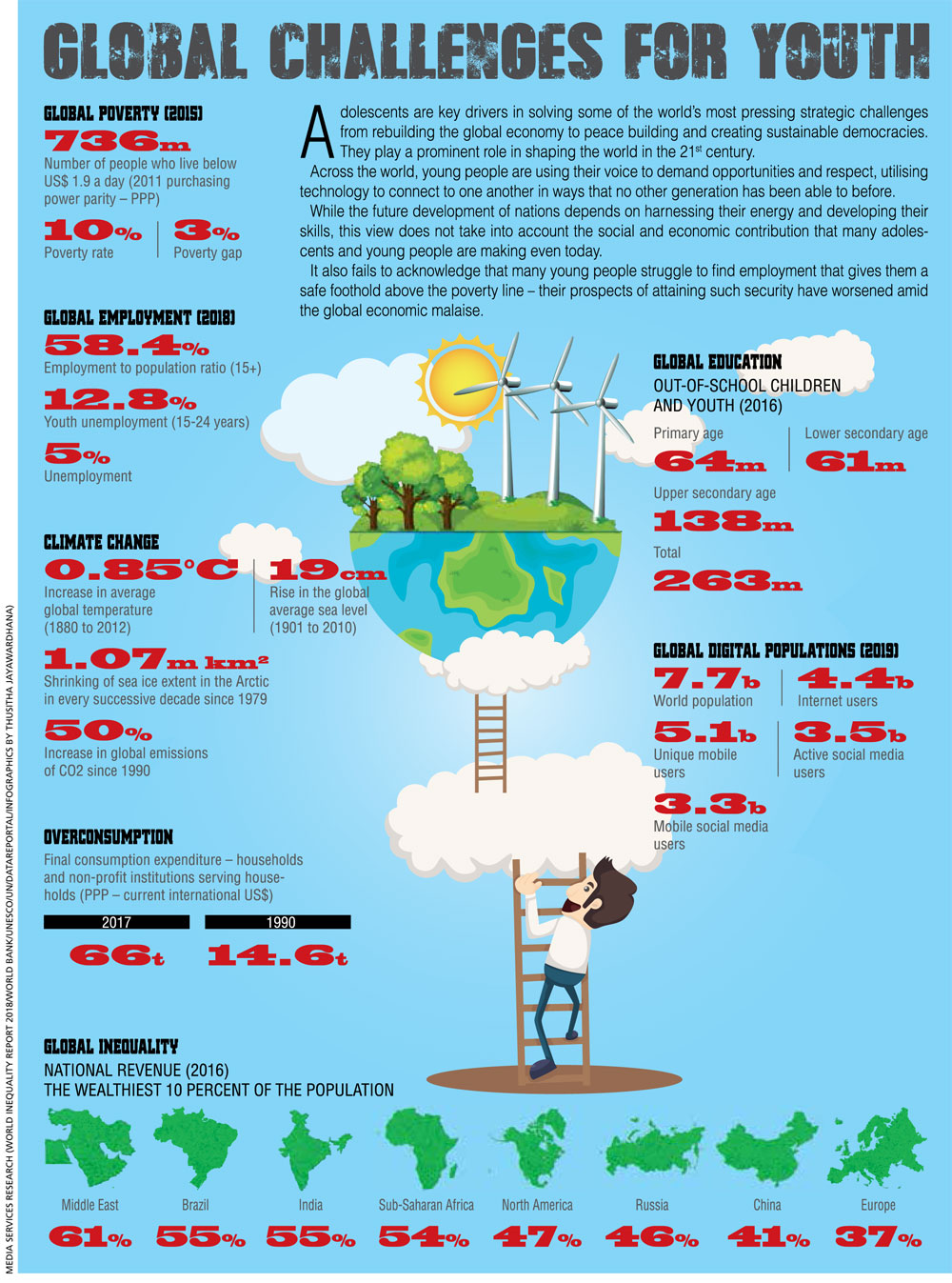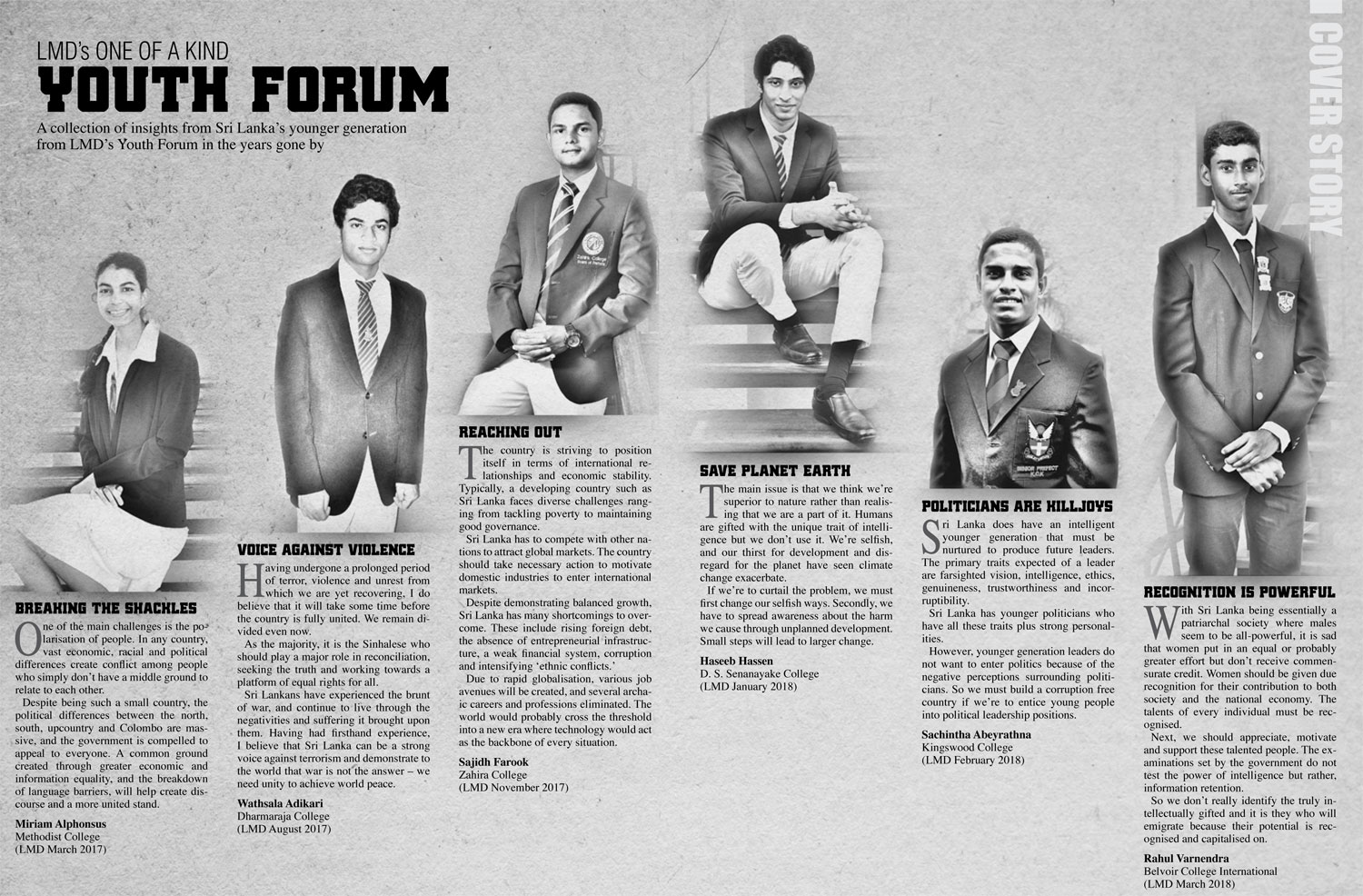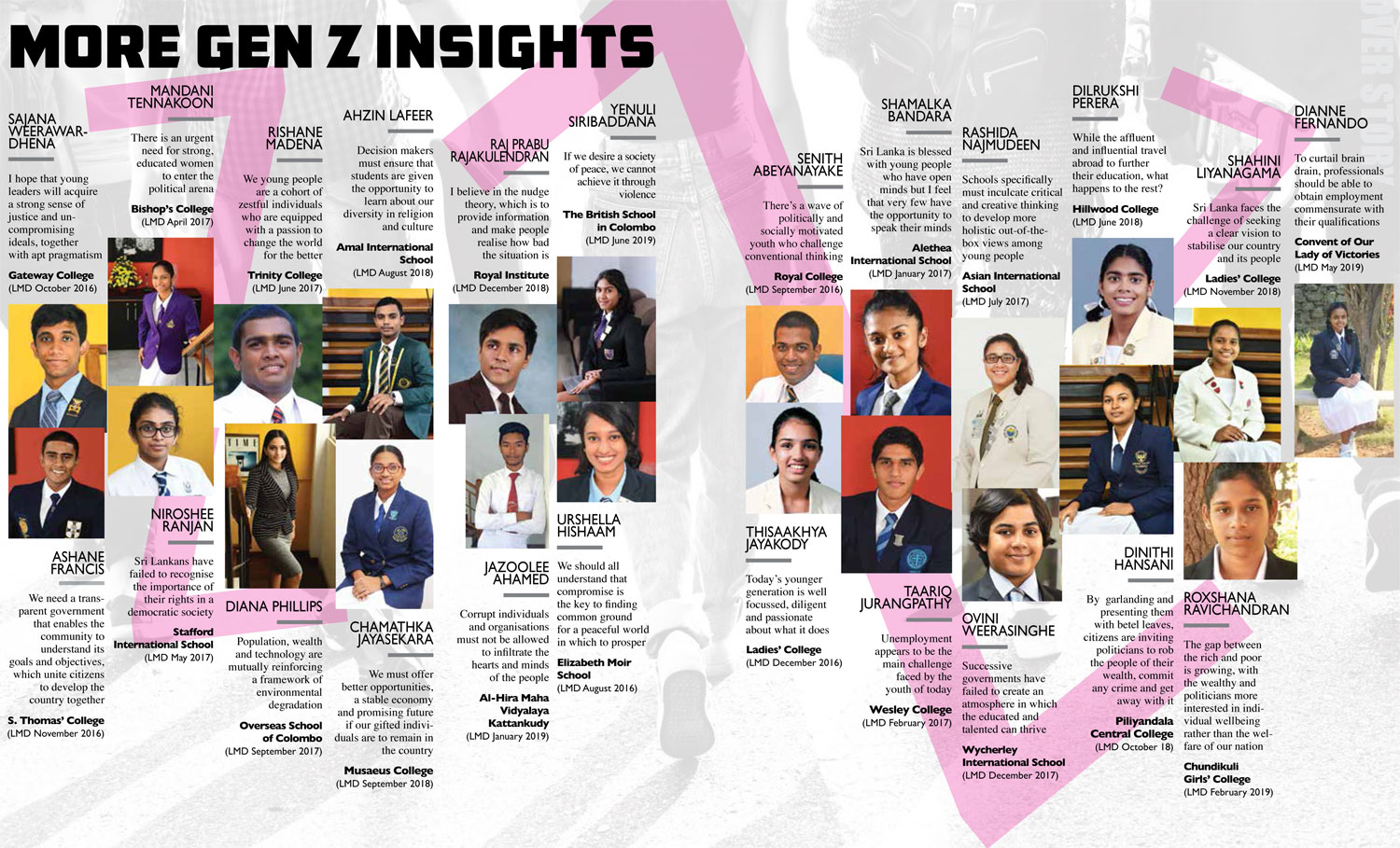COVER STORY
PASSING THE BATON
The evolving role of generation Z in the wake of a rapidly changing global order
Generations are born from disruption, and disruptions are only going to come faster in a world of instant global communication and collaboration,” says Marcie Merriman, EY Americas Cultural Insights & Customer Strategy Leader, in an article penned in May last year.
Indeed, disruption seems to be the order of the day and amid such an environment, the role of youth representation is becoming more important than ever before.
Whereas millennials or gen Y (those born in the early 1980s and the mid-90s) experienced the transition to all things digital, the generation that succeeded them was born into a world where the ‘analogue culture’ was for all intents and purposes a thing of the past.
According to the Sri Lanka Labour Force Survey for the fourth quarter of 2018 published by the Department of Census and Statistics, 15 to 19-year-olds and 20 to 24-year-olds – who are part of the generation Z demographic – cumulatively accounted for nearly a fifth of the household population (of 15 years and over) and represented 11 percent of the labour force.
Indeed, these are telling statistics that don’t seem to have registered in the minds of policy makers and businesspeople alike – not to any meaningful degree and not thus far, at any rate.
WORKFORCE ENTRY The impact of these ‘digital natives’ is not a thing of the future but rather, a reality that we must surely come to terms with even as gen Z makes its way into the workforce in the present day. Their views on everything from education and employment, to inequality, technology, climate change, healthcare and social integration, also call for urgent attention.
When it comes to education and employment, Newsweek reports that a survey by Accenture found that nearly nine in 10 graduating seniors in the US chose a college major with a job in mind. Moreover, a 2019 survey of University of Georgia students revealed that the ability to offer secure employment was considered the most desirable trait of a prospective employer.
Given that these are times of heightened globalisation – coupled it has to be said, with forces that are pulling in the opposite direction – one may surmise that similar sentiments hold true for Sri Lanka as well.
“Job security or stability was the second most important career goal (work-life balance was number one), followed by a sense of being dedicated to a cause or to feel good about serving the greater good,”Newsweek reports.
PASSING THE BATON The greater good also comes to the fore in responses to LMD’s monthly Youth Forum column, which has presented the views of high performing students from across the island over the years and forms the nucleus of our 25th anniversary Cover Story.
We think it’s time to pass the baton so to speak.
KEY TAKES FROM GEN Z As highlighted by these young achievers, much remains to be done to bridge the gap between the haves and have-nots, both in Sri Lanka and beyond, with a greater role envisioned for the government and private sector in this endeavour.
Education is identified as a unifier and means to moderate inequalities in modern society, which must also look to heal the wounds of the protracted civil conflict that lasted 26 years and ended in May 2009.
While Sri Lanka may cite multiculturalism in the public sphere, our youth want this diversity to be celebrated in a more real sense whereby national reconciliation is accorded greater priority by the powers that be and observed at the grassroots.
Speaking about the so-called ‘political elite,’ the nation’s young citizens are firm in their belief that Sri Lanka’s elected representatives have failed to live up to their promises to the people. Therefore, they appeal to young leaders to come forward and take on the mantle of developing the country so that it can play a more prominent role on the world stage.
Meanwhile, technology is not optional but an essential tool for youth, so much so that they point to it as offering a lifeline to rescue a world that is seemingly unable to come to grips with the catastrophic toll of climate change.
Generation Z is often referred to as a collective of highly skilled yet pragmatic individuals, which perhaps is due to the circumstances that they’ve encountered thus far. Driven and ambitious as they are, caution is rarely thrown to the wind, which is unlike many of their predecessors.
The song Youth by Shawn Mendes and featuring Khalid – two popular members of the global gen Z community – was written in the aftermath of the Manchester Arena bombing in May 2017.
Its lyrics sums up the message of the young citizens of the world: “Waking up to headlines Filled with devastation again My heart is broken But I keep going Pain, but I won’t let it turn into hate No, I won’t let it change me… You can’t take my youth away This soul of mine will never break As long as I wake up today You can’t take my youth away.”










Leave a comment